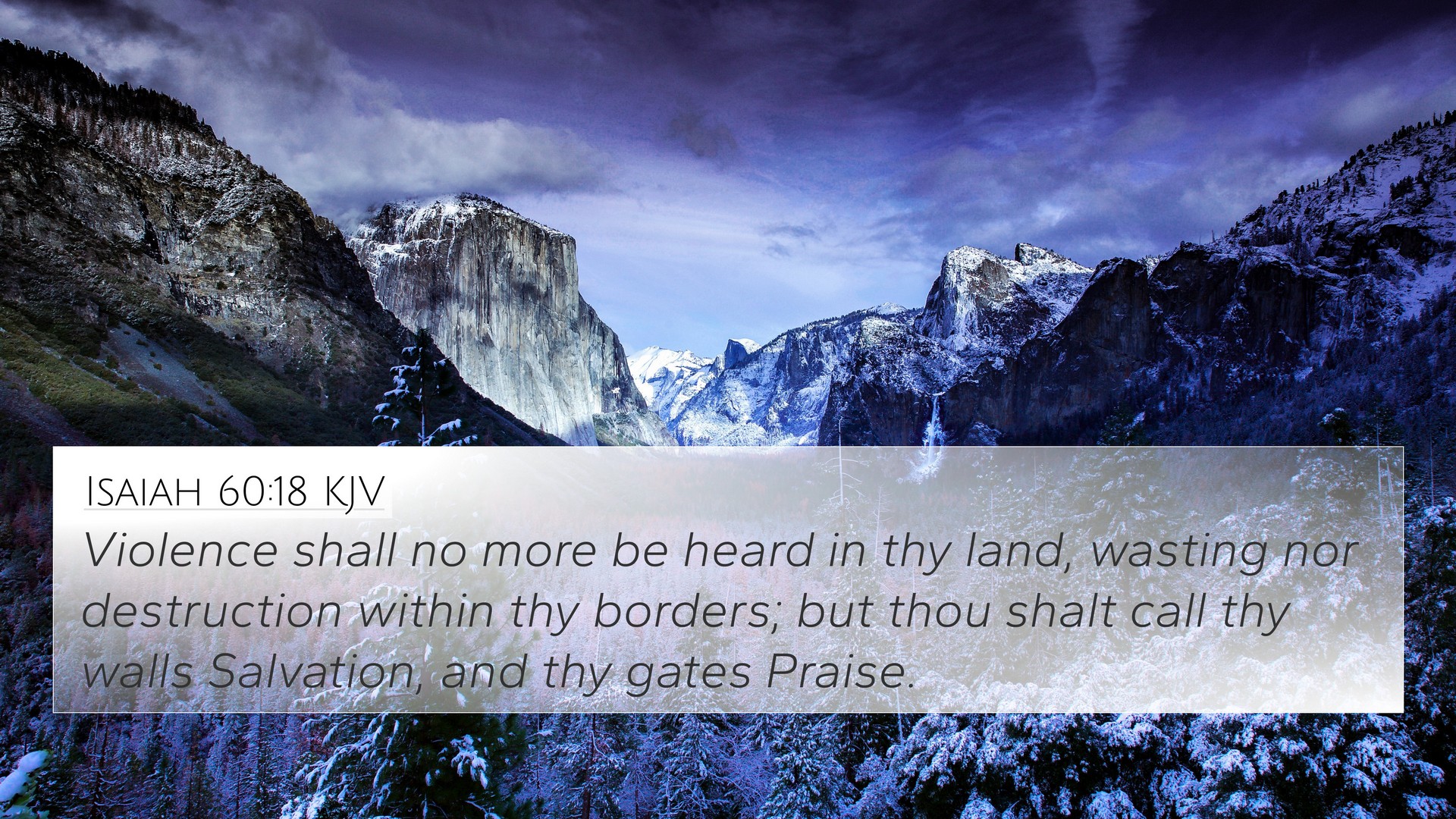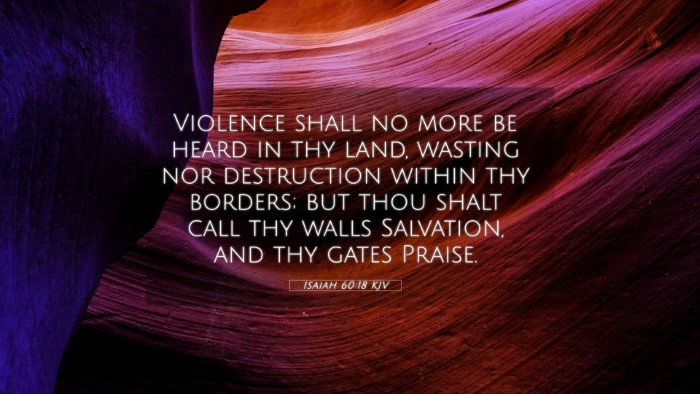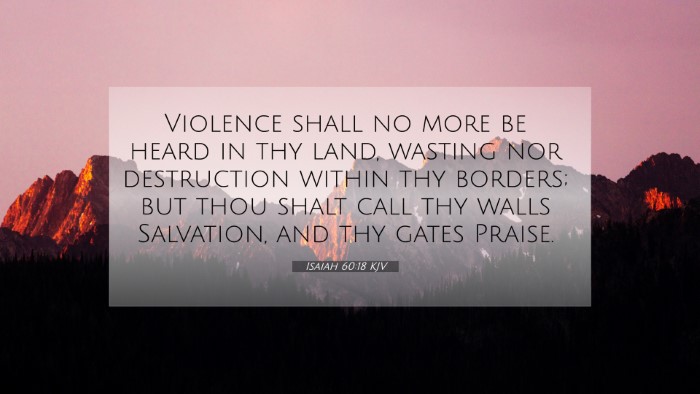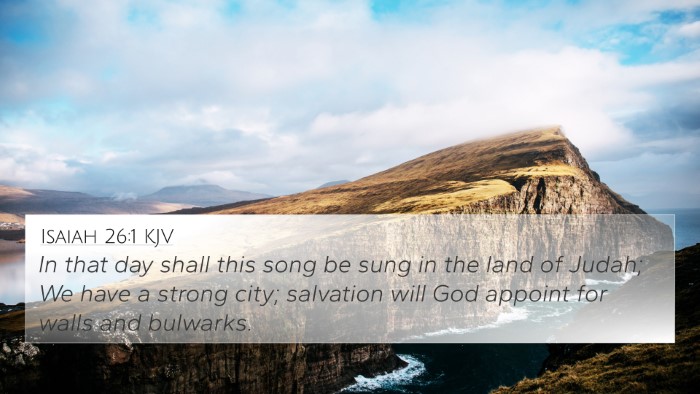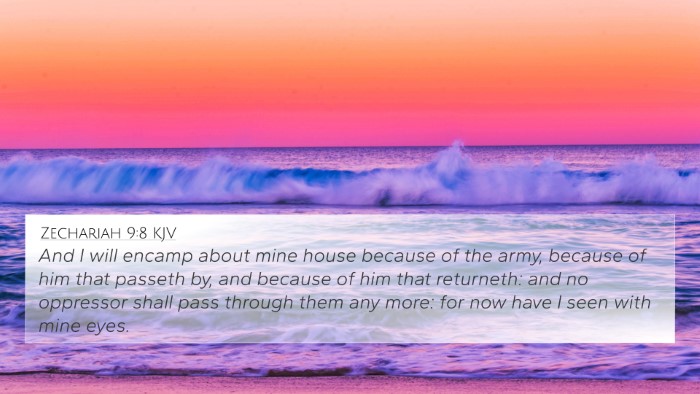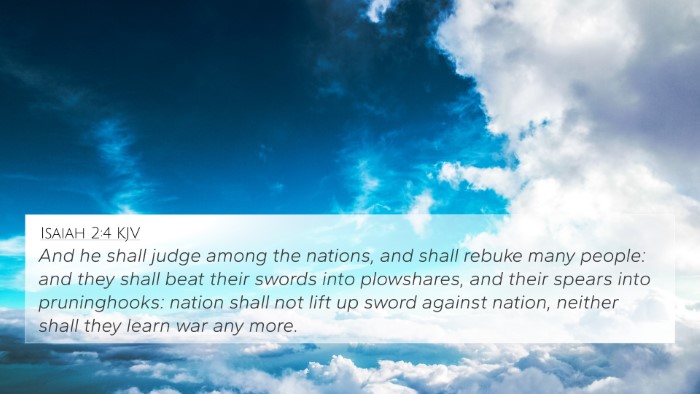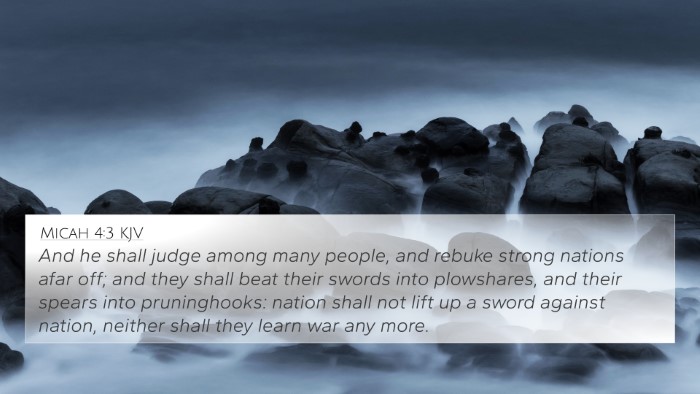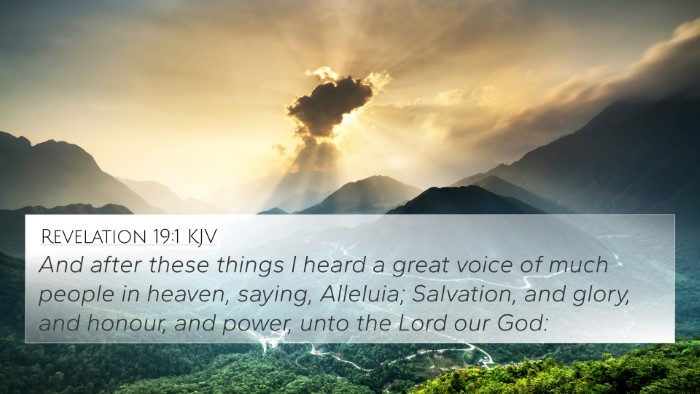Exploring the Meaning of Isaiah 60:18
Isaiah 60:18: “Violence shall no more be heard in thy land, wasting nor destruction within thy borders; but thou shalt call thy walls Salvation, and thy gates Praise.”
Context and Overview
This verse is situated within a prophetic vision of peace and restoration that the prophet Isaiah presents, reflecting God's promise of comfort and renewal for His people. It speaks of a time when violence and destruction shall fade away, replaced by salvation and praise. The imagery used emphasizes a transformation not only of physical circumstances but also of the spiritual state of the people.
Commentary Insights
Matthew Henry's Commentary
Henry notes that this verse indicates a dramatic shift from turmoil to tranquility. The mention of "violence" signifies the historical afflictions Israel faced, whereas the promised "Salvation" symbolizes deliverance and divine favor. The walls and gates mentioned refer to both literal fortifications and spiritual truths, signifying security and glory in God's presence.
Albert Barnes' Notes
Barnes emphasizes the eschatological implications of this verse, interpreting it as a vision of the New Jerusalem, where God's people will dwell in peace. He highlights that the cessation of violence is pivotal for a community defined by salvation and praise. Barnes also connects the gates with worship, suggesting that those who enter will do so in a spirit of thanksgiving and adoration.
Adam Clarke's Commentary
Clarke discusses the significance of the various terms used in this verse. He carefully unpacks "wasting" and "destruction," which symbolize not only physical ruin but also the affective loss of life quality. Clarke draws connections to the durability of walls as symbols of security and safety, asserting that salvation will be a dominant and transforming theme within the community.
Bible Verse Cross-References
Isaiah 60:18 finds connections with several other scriptures, providing a richer understanding of its meaning:
- Revelation 21:4 - Speaks of God wiping away tears and removing death and sorrow, echoing the theme of divine restoration.
- Isaiah 11:9 - Describes a time when the earth will be full of the knowledge of the Lord; harmony replaces violence.
- Psalm 122:7 - Addresses peace within the walls of Jerusalem, reinforcing the theme of divine protection.
- Zechariah 9:10 - Prophetic promise of peace and a kingdom devoid of war and strife.
- Micah 4:4 - Portrays a future where people live in undisturbed peace, a fulfillment of Isaiah's vision.
- John 14:27 - Jesus speaks of a peace that He gives, which is not of this world, resonating with the peace promised in Isaiah.
- Romans 5:1 - The New Testament affirmation of peace with God through justification, linking the Old Testament promise to New Covenant realities.
Thematic Connections
The verses referenced demonstrate a thematic continuity throughout the Scriptures, showcasing how the longing for peace and salvation permeates both the Old and New Testaments. In interpreting Isaiah 60:18, we find that God's intent to bring His people into a state of fullness, joy, and worship is central to His redemptive plan.
Inter-Biblical Dialogue
This verse encourages an understanding of peace as a pivotal element in God's covenant relationship with humanity. It invites believers to explore how concepts of salvation and divine protection recur through various books of the Bible, providing an avenue for holistic biblical interpretation.
Practical Application and Reflection
As we meditate on Isaiah 60:18, we are prompted to reflect on areas in our lives that require God's peace and Salvation. The exhortation to call our "walls Salvation" reminds us of the security we find in Christ, as well as the communal aspect of worship indicated by "gates Praise." These themes encourage an active response to embody faith and hope amidst life's challenges.
Conclusion
Isaiah 60:18 encapsulates a profound promise of transformation and divine intervention. By engaging with commentaries and cross-referencing this verse with others, we can gain a deeper appreciation of the peace and salvation that God offers. Such explorations enrich our spiritual lives, reminding us that Scripture is interwoven with messages of hope and restoration.
Tools for Further Study
For those interested in comprehensive Bible study, employing tools such as bible concordances or a bible cross-reference guide can greatly assist in discovering more about cross-referenced themes in the Bible. Understanding these connections can lead to a more impactful and connected theological understanding.
